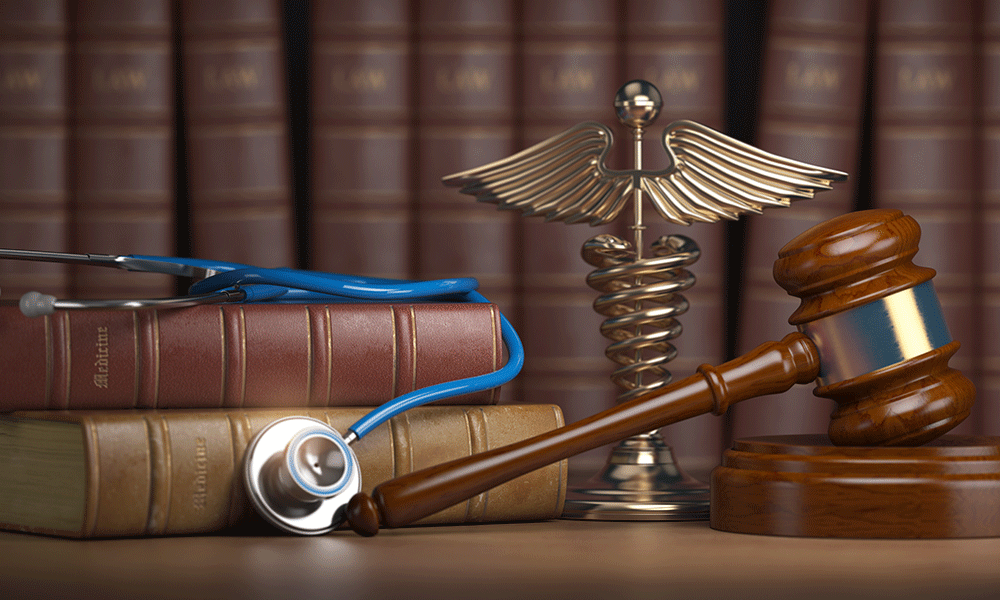Coronavirus increasing physicians’ professional liabilities
Current issues to consider to protect your career and your assets.

As the healthcare community leads the front-line fight against the COVID19 coronavirus, a lack of PPE and medical equipment isn’t your only new risk. Here are some current issues to consider to protect your career and your assets.
Liability for Care Decisions in A Crisis
Doctors on the front lines of the coronavirus crisis include nearly every specialty from primary care to emergency medicine, each with different levels of legal exposure. Those whose professional responsibility may include care rationing during a surge or due to an equipment shortage have an especially heavy burden. A recent Reuters report covered a shift to the crisis standard of care that is meant to provide a framework for making difficult decisions and provide some legal protection for the doctors that have to make them. The guidelines, in part, speak to physicians having to make decisions on who gets care and who does not.
In the report, the panel says that in spite of efforts to forestall the virus, it expects “a growing number of hospitals will face medical needs that outpace the existing supply of ventilators, protective equipment and other essentials, as well as the rate that enhanced supply can be produced, acquired and put into place. These circumstances will require a shift to Crisis Standards of Care.” The panel says there is “an imminent need to prepare for difficult decisions about allocating limited resources, triaging patients to receive life-saving care and minimizing the negative impacts of delivering care under crisis conditions.”
Trending: CMS program could provide financial relief for practices
While those guidelines provide useful basics, there is no unified national crisis triage standard outside the common admonition to avoid decisions based on age, gender, race and disability. As one recent report on coronavirus related litigation pointed out.
Health care providers may prioritize patients without underlying conditions who are likeliest to make a full recovery, but there’s no national standard for triage. The question of withholding or withdrawing ventilators from the sickest patients is so charged that medical experts have encouraged providers to develop their own guidelines. Like the U.S. pandemic response itself, it’s largely a state-by-state and, to some extent, hospital-by-hospital patchwork.
Medical malpractice attorneys are advertising claims against physicians, hospitals, and nursing homes and the first major lawsuit filed for a contamination claim (as opposed to a malpractice claim) was filed against a cruise line. Other reports have examined specifics like the possible civil and criminal liability associated with withdrawing or withholding ventilators from patients needing critical care. While there isn’t realistic liability for “withholding” a ventilator from a patient because it doesn’t exist to give, there may be significant liability for withholding or withdrawing one called for under the standard of care without patient consent or without both a crisis fact pattern and the guidelines referenced above.
Fortunately, there is some statutory defense in the works as multiple legislators have proposed legislation to help shield physicians from litigation risk associated with both the medical equipment and PPE shortage and the flexibility required of providers by these extraordinary circumstances. According to a summary report of one bill sponsored by senator Ben Sasse:
Liability would be limited, in particular for those using or modifying a medical device for an unapproved use; practicing without a license or outside of their area of specialty, if instructed to do so by someone with such a designation; or conducting testing or providing treatment to a patient outside the premise of a standard healthcare facility. New York state similarly has moved to protect providers from litigation.
Physicians not directly treating COVID-19 patients are also facing additional risk due to both complications of pre-existing chronic conditions and diseases when combined with the virus and due to significant delays by those seeking medical care for a variety of reasons ranging from fear of exposure by visiting a medical facility to loss of health insurance caused by virus related layoffs. I’ve personally seen a variety of social media posts by physicians relaying their experiences with these patients who are coming in later and in more critical condition, increasing risk to both doctors and patients.
Read More: Coding during the Coronavirus pandemic
What this means for physicians is that documentation of these cases and the specific circumstances involved in the care provided will be a more important part of your defense than ever before. This includes factors that account for your local and institutional crisis care standards, the condition of the patient, and the availability of remedies including but not limited to medical equipment, medications and other essential supplies.
Ike Devji, JD, has practiced law exclusively in the areas of asset protection, risk management and wealth preservation for the last 16 years. He helps protect a national client base with more than $5 billion in personal assets, including several thousand physicians. He is a contributing author to multiple books for physicians and a frequent medical conference speaker and CME presenter. Learn more at www.ProAssetProtection.com.
HIPAA highlights: 2 disturbing class actions, OCR risk analysis enforcement
April 24th 2025Two class-action lawsuits targeting the University of Maryland Medical Center and the University of Kansas Health System for years-long cyberstalking and unauthorized access to protected health information spotlight massive HIPAA risk-analysis failures and underscore the urgent need for stronger health care cybersecurity safeguards.
HIPAA highlights: 2 disturbing class actions, OCR risk analysis enforcement
April 24th 2025Two class-action lawsuits targeting the University of Maryland Medical Center and the University of Kansas Health System for years-long cyberstalking and unauthorized access to protected health information spotlight massive HIPAA risk-analysis failures and underscore the urgent need for stronger health care cybersecurity safeguards.
2 Commerce Drive
Cranbury, NJ 08512
All rights reserved.